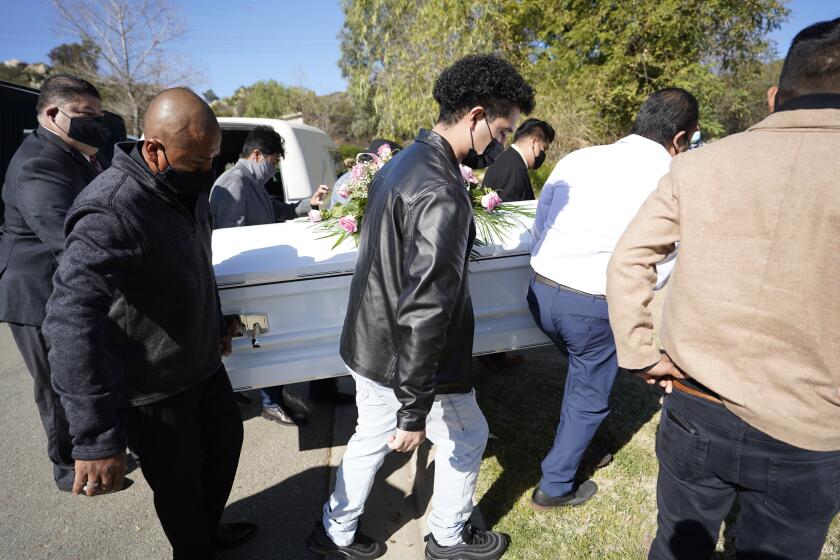When Care is Denied : Bureaucracy and cost controls are the culprits that Californians typically blame when HMOs deny them medical care. Here is one patient’s story: : REBECCA SISON / Assembly Line Medicine?
Rebecca Sison says she was victimized by a “9-to-5 mentality” that can befall some HMO doctors who work as salaried employees for big medical companies.
It was such indifference, she contends, that led to problems when she sought treatment for severe abdominal pain at Kaiser Permanente’s West Los Angeles hospital in February, 1993.
Physicians there failed to recognize warning signs of acute appendicitis, she says, and then failed to perform surgery until 46 hours after her admission--when her appendix had already ruptured. “Kaiser assumed that it was the least severe problem rather than the worst,” says Sison, a 34-year-old ophthalmologist who has an arbitration case pending against Kaiser.
In a separate action, a California Medical Board investigation of the Sison case resulted in the state attorney general’s office filing formal disciplinary actions a year ago against two physicians who treated Sison.
In the actions, the board alleged that attending physician Dr. Bruce I. Rogen negligently failed to examine Sison until about 14 hours after her admission and prescribed narcotic painkillers “without first having diagnosed the patient’s conditions and / or having arranged for a surgical consultation and assessment.”
Medical Board sources said the attorney general’s office plans to withdraw the case against Rogen for unspecified reasons. In exchange for the action’s withdrawal, Rogen agreed to submit to a 10-question oral examination on medical issues related to the Sison case. It is unusual for the attorney general to withdraw an action, but “less serious” cases are occasionally settled in this way, sources said. Rogen did not admit any wrongdoing, and there were no formal findings of negligence by the board.
The board also charged that during three exams, consulting surgeon Dr. Barbara S. Eaton “at no time performed a rectal or pelvic examination” and prescribed antibiotics and pain medication “without having made a diagnosis of the patient’s condition.”
Kaiser officials and a lawyer for the doctors strongly dispute Sison’s story.
Gary Wittenberg, a Beverly Hills lawyer representing Eaton and Rogen, said his clients are “fine doctors” and that “all of the care was appropriate.”
Marian Rosenthal, chief of medicine at Kaiser’s West Los Angeles hospital, contends that Kaiser physicians performed a “full physical examination” of Sison before they prescribed medication, and that her symptoms could be associated with other ailments besides appendicitis. Rosenthal, a gastroenterologist, was one of several doctors involved in Sison’s treatment but is not named in the medical board actions.
Filing a case against Kaiser--let alone another health provider--wasn’t an easy decision, Sison says. Her father is a retired Kaiser pathologist, and her mother is a pediatrician. She holds a degree in public health from UCLA and a medical degree from Johns Hopkins University.
Sison was a third-year ophthalmology resident at Martin Luther King Jr./Drew Medical Center and was training to run the Los Angeles Marathon when her illness struck. As a Los Angeles County employee, she had signed up for the Kaiser Foundation Health Plan.
She was admitted to the Kaiser hospital in the late afternoon of Feb. 17, 1993, with severe abdominal pain. It wasn’t until 2 p.m. on Feb. 19 that Kaiser doctors operated, finding a ruptured appendix. Sison remained in the hospital for 10 days. She says she still suffers from occasional abdominal pain and is fearful the surgery may have left her unable to bear children.
“These doctors don’t have to feel like they have individual responsibility for me,” Sison says. “I think that in many cases, the system perpetuates undertreatment.”



